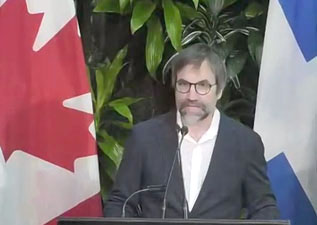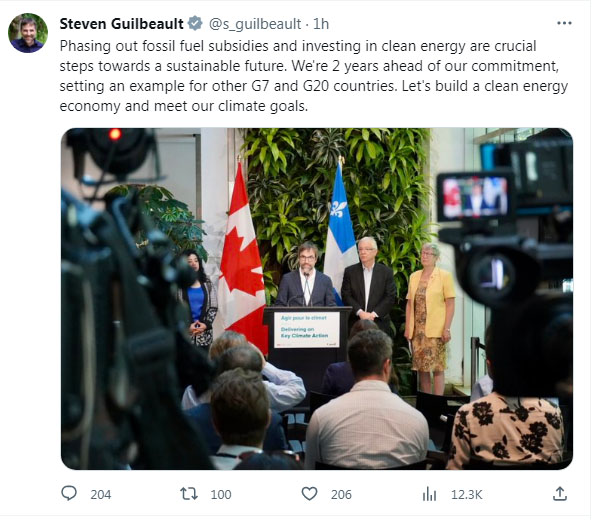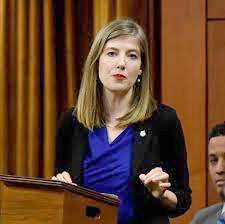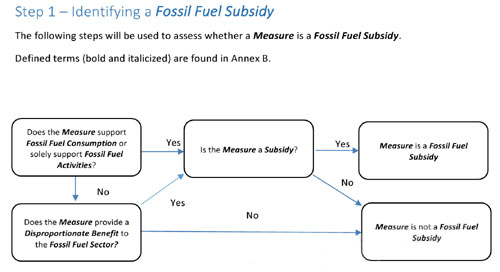Monday July 24, 2023 | OTTAWA / NATIONAL [Updated 9:35 am]
by Mary P Brooke | Island Social Trends
Environment and Climate Change Canada (ECCC) has released a new method of trying to curtail carbon emissions by requiring any applications for a fossil fuel subsidy to meet some new criteria.
Federal and federally-affiliated projects will be subject to this scrutiny and assessment.

This is a “make or break decade”, said Environment and Climate Change Minister Steven Guilbeault in his announcement this morning about eliminating fossil fuel subsidies in Canada.
“Phasing out fossil fuel subsidies and investing in clean energy are crucial steps towards a sustainable future,” is how Guilbeault summarized his announcement on Twitter (X) today.
Guilbeault says the new approach delivers on an important govt commitment to G7 and G20 partners and to Canadians. “We’re two years ahead of our commitment, setting an example for other G7 and G20 countries. Let’s build a clean energy economy and meet our climate goals,” he posted in social media.
The third phase is public financing by crown corporations. The subsidies have been reduced by billions of dollars, said Guilbeault.
“You phase out one thing that you don’t want, and bring in things that you do want,” explained Guilbeault about moving forward with changes to achieve climate protection goals.
He added that Canada does not give federal dollars to produce coal or fossil fuels. “This is a fundamental shift. We’re the first G20 country to present such a framework.”
“We’re not making a dent. We’re eliminating fossil fuel subsidies,” said Guilbeault. Enhanced oil recovery is not eligible for tax recovery.
“This is not a silver bullet” toward meeting the 2030 and 2050 climate change targets, it’s part of a suite of changes, the ECCC minister pointed out.
“Eliminating inefficient fossil fuel subsidies and redoubling our focus on clean energy is a key step in building Canada’s net-zero economy by 2020 and supporting good-paying jobs for Canadians for generations to come,” it was stated in the followup news release today.
Thanking local MP Laurel Collins:
Of political note, ahead of his full remarks this morning, Gilbeault acknowledged the contribution of NDP MP Laurel Collins (Victoria) and the support of the federal NDP in environmental policy.
Common sense for business and economy:
“It is no longer free to pollute in Canada,” said Guilbeault. He pointed out that the World Bank and groups around the world support that eliminating fossil fuel subsidies is “now the common sense bottom line for economists to create clean growth opportunities”.
“We will help business seize the many opportunities that come with this move,” said Guilbeault today, adding that the policy will help “secure middle class jobs coast to coast”.
Elimination of fossil fuel subsidies in Canada is something environmentalists have called for, Guilbeault pointed out.
He said there would be continued support for the oil and gas sector. “This is a forward-looking commitment” that will facilitate “forward-looking investment decisions that are aligned with climate and energy goals”.
Guilbeault said Canada has “a pretty good idea of what’s happening in the world to evaluate what is realistic and unrealistic for companies to get to net-zero by 2030”, said Guilbeault in the media session today.
He reminds that “global collective action” is the essential way forward. He points out that the world is heading toward a 2.5 degree increase (a bit lower than the 3.5 global temperature increase that was predicted). He said that the heat in summer 2023 is an example of the world heating up, and claims Canada is not ‘doing too much’.
“We need to accelerate the fight against climate change,” plain and simple.
Background:
In 2009, Canada and other G20 countries committed to phase out and rationalize over the medium-term inefficient fossil fuel subsidies while providing targeted support for the poorest.
“Inefficient fossil fuel subsidies encourage wasteful consumption, reduce our energy security, impede investment in clean energy sources and undermine efforts to deal with the threat of climate change,” it was stated in ECCC documentation today.
“As we do that, we recognize the importance of providing those in need with essential energy services, including through the use of targeted cash transfers and other appropriate mechanisms.”
“This reform will not apply to our support for clean energy, renewables, and technologies that dramatically reduce greenhouse gas emissions.”
Criteria for Ministers to follow:
Gilbeault pointed out today that all government ministers are expected to be part of the government’s effort to improve the environment (as well as the relationship with Indigenous peoples).
All initiatives identified as Fossil Fuel Subsidies will be considered as potential Inefficient Fossil Fuel Subsides unless they meet one or more of the following criteria. Subsidies that:
- enable significant net GHG emissions reductions in Canada or internationally (in alignment with Article 6 of the Paris Agreement).
- support Clean Energy, Clean Technology, or Renewable Energy.
- provide an Essential Energy Service to a Remote Community
- provide short-term support for Emergency Response
- support Indigenous Economic Participation in Fossil Fuel Activities
- support Abated production processes, or projects that have a credible plan to achieve net-zero emissions by 2020.
If any Minister determines that an Initiative would be an Inefficient Fossil Fuel Subsidy, they should not submit the Initiative for consideration and instead undertake efforts to refine the Initiative to avoid the creation of an Inefficient Fossil Fuel Subsidy.

Peer-review:
Canada will also produce a self-review report. The OECD has agreed to chair the peer-review panel. Canada is establishing an international panel. The process is expected to be complete in 2024, according to ECCC today.
Only measures within the scope of Canada’s 2009 G20 commitment (i.e. measures enacted by the federal government or entities wholly controlled by the federal government) will be assessed.








